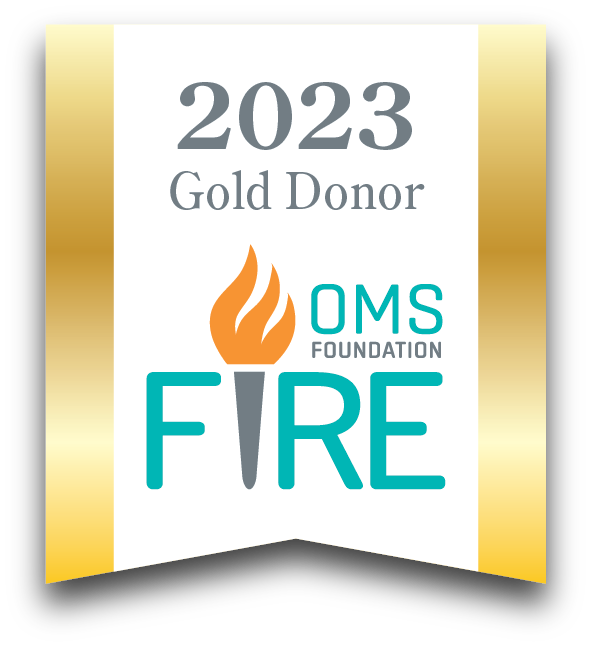What to Do After a Tooth Extraction

No one likes losing a tooth, and dentists do everything possible to avoid an extraction. But if a tooth is damaged beyond repair, removing it is the only solution to stop pain and prevent complications.
Tooth extraction generally becomes necessary because of extensive decay or physical trauma, or if gum disease has destabilized jawbone and soft tissues that hold the tooth in place. And wisdom teeth often have to be removed as a preventive measure as well as to resolve concerns that are already evident. In this post, Des Moines Oral Surgeons PC, specialists in complex wisdom teeth extraction, explain what you need to do to help recovery after any type of tooth extraction.
The Healing Process After Tooth Extraction
General dentists and oral surgeons ensure minimal discomfort during and after tooth extraction. Recovery time depends on the complexity of the procedure and differs from patient to patient. Healing after wisdom teeth removal may take longer, for example. However, you can take steps to help the healing process and ensure the best possible recovery after any tooth extraction.
It generally takes a few days before you get back to normal after having a tooth pulled, although healing may take one or two weeks as new gum tissue and bone grow into the gap. You may need to take a few days off work or school. Your dentist or oral surgeon will advise you on this. The following measures during recovery will help the healing process, reduce the risk of infection, and minimize discomfort.
The First 24 Hours After Tooth Extraction
The first thing to do after a tooth extraction is take it easy for the rest of the day. Find a comfortable armchair and rest as much as you can. Keep your head up to minimize any bleeding. Effects of the local anesthetic administered immediately before tooth extraction will last a few hours. This means you could damage your mouth without realizing it.
To prevent this, avoid hot food and drinks, which could burn your mouth. You could also inadvertently bite your cheek lining, so wait until your mouth no longer feels numb before you start eating the foods advised by your dentist.
There are also a few things you shouldn’t do for 24 hours after tooth extraction.
- Don’t use mouth rinses.
- Don’t drink through a straw – the sucking action could disturb the blood clot.
- Avoid alcoholic drinks and tobacco use.
The First Few Days After Tooth Extraction
After a tooth extraction, blood clots in the tooth socket. This helps prevent infection and dry socket and promotes healing. So, you need to take steps to optimize the clotting process for a few days, starting 24 hours after extraction. Gently rinse your mouth with warm salt water three or four times a day, and always after meals. You can now also resume brushing your teeth, but you need to do it carefully. Avoid the extraction site as far as possible.
Eat nutritious soft foods until you’re able to chew carefully, avoiding the tooth socket. Continue to avoid alcohol and smoking. Take over-the-counter pain relief or medication prescribed by your dentist to ease discomfort. Alleviate swelling with a cold compress; using an extra pillow at night can also help. If the tooth socket bleeds, bite down for 10 minutes on a clean piece of gauze placed over the area. Repeat this process as necessary.
What to Expect After Tooth Extraction
Slight bleeding is normal for a day or so after a tooth has been removed. So is some swelling and bruising, and you might have problems opening your mouth wide. These issues should get better within a week or two. Sometimes stitches are necessary to close the extraction wound. Dissolvable stitches are normally used. These will fall out within a few weeks. If you had non-dissolvable sutures, your dentist or oral surgeon will remove them after seven to fourteen days.
Lower Back Teeth
Back teeth (molars) in the lower jaw have multiple roots, which makes extraction more difficult. Afterward, this may cause pain, tingling or numbness in the tongue, lips, or chin, which is usually temporary.
Upper Back Teeth
Removal of upper molars can lead to infection in the nearby nasal sinuses that drain away mucus. This should subside over a few weeks.
What You Can and Can’t Eat After Tooth Extraction
Foods you can eat during the first few days after tooth extraction include:
- Mashed potatoes
- Scrambled eggs
- Applesauce
- Smoothies
- Soup
- Yogurt
Foods to avoid include:
- Chewy foods, including meat
- Crunchy foods
- Spicy foods
- Snacks like potato chips, candy, and popcorn
Recovery After Wisdom Teeth Extraction
Recovery after wisdom teeth removal typically takes a couple weeks, depending largely on whether the procedure was routine or a more complicated, surgical extraction. Many people return to school or work a few days after wisdom teeth removal, as long as their job isn’t strenuous. Our Des Moines oral surgeons recommend several steps to ease discomfort and help healing after wisdom teeth extraction.
Tooth Replacement After Extraction
If an extracted tooth isn’t replaced, over time other teeth can start to drift toward the gap, impairing bite function. Replacing a missing tooth is also important to restore self-confidence if a visible gap is spoiling your smile. Tooth replacement options include conventional dentures and bridges, but the gold standard of artificial teeth is the dental implant. Dental implants can replace a single tooth, several teeth, or all the teeth, and have many advantages over traditional dentures and bridges.
How to Avoid Future Tooth Extractions
Maintaining a good standard of oral hygiene is crucial to encourage healing after a tooth extraction. It’s also important in the long term to avoid buildups of plaque that can cause further dental problems and the need for more tooth extractions.
- Brush your teeth twice a day.
- Use a fluoride toothpaste.
- Brush your tongue.
- Floss between your teeth daily.
- Get regular dental exams and professional cleanings.
- Avoid smoking.
- Maintain a nutritious, balanced diet.
- Limit sugary snacks and drinks.












Please login to publish a comment.
Comments (1)